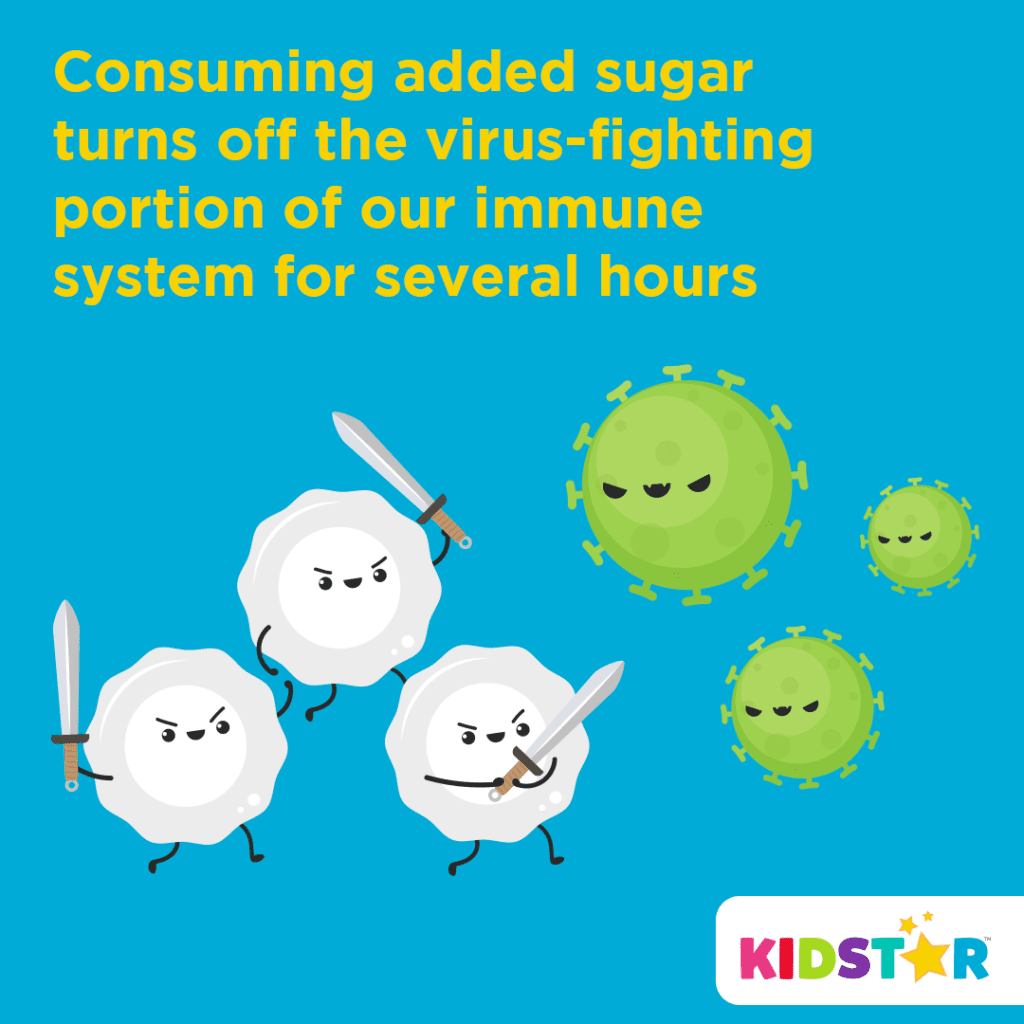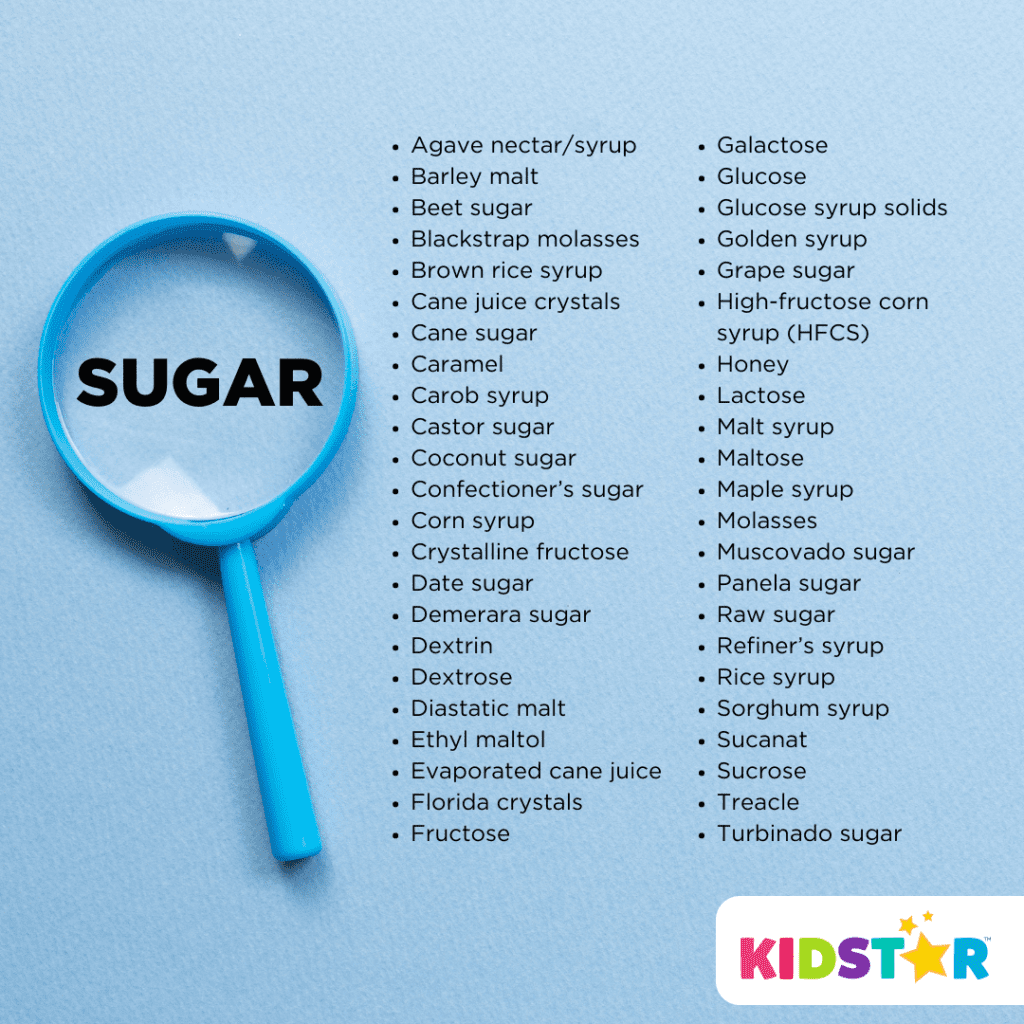Added Sugar and the Immune System

By Lorna R. Vanderhaeghe, M.Sc.
We all know that excess sugar in our diet can contribute to health issues like dental decay, obesity, type 2 diabetes, heart disease, acne, and mood disorders. But did you know that excess sugar intake can also affect our immune system and cause increased inflammation?
How Added Sugar Affects Immunity
Studies have linked increased consumption of dietary sugar with increased production of inflammatory proteins and chronic inflammation. Chronic inflammation can lead to depression and other mood disorders, fatigue and insomnia, digestive issues, and weight gain.

Chronic inflammation can also negatively affect immune function and lead to frequent infections.
Excess sugar intake inhibits the response of immune cells that protect against infection. Consuming added sugar turns off the virus-fighting portion of our immune system for several hours. Sugar causes our macrophages to slow down to a sluggish pace so they cannot do their job of engulfing viruses and bacteria.
A diet high in added sugars can also drive gut bacteria imbalances, which can alter immune response. One study has shown that fructose (a form of sugar that is commonly added to processed foods) can inhibit some of the “good” bacteria from colonizing in the gut. When your immune system is out of balance, you become more susceptible to infections.
In other words, eating too much sugar can really throw your immune system out of whack!
The Many Names of Sugar
With the easy availability and convenience of processed foods, it’s not difficult to consume far more than the recommended daily intake for sugar.
The World Health Organization recommends that children limit their daily intake of added sugars to less than 5% of total energy intake (about 6 teaspoons of sugar). A single can of soda pop can contain up to 10 teaspoons of added sugar! And the American Academy of Pediatrics recommends avoiding foods and drinks with added sugars for children under the age of two.
Sometimes sugar is found in foods where you don’t expect it, like some soups, breads, and salad dressings. Many processed foods contain added sugars.
Sugar isn’t always listed as “sugar” on ingredient labels either. It can appear as cane sugar, dextrose, glucose syrup solids, high fructose corn syrup, lactose, and many others.

Choose Supplements Without Added Sugar
Reducing sugar intake isn’t always easy. But it’s a good idea to limit sugar when and where you can.
For instance, if you’re giving your children supplements to help support good health, then would you want to give them added sugar, too? That’s extra sugar for your kids each day—and it all adds up. Try to choose supplements without added sugar.
Afraid your kids won’t like taking their vitamins without the sweetness of sugar? There are other options! All KidStar’s nutrients are free of added sugars and sweetened with natural sweeteners like stevia and xylitol. KidStar also uses natural fruit flavours like organic orange, lemon, strawberry, and raspberry, to make nutrients delicious, for kids of all ages to take.
Try These Sugar-Free, Immune-Supporting Nutrients
Easy-to-use vitamin D3 spray, flavoured with delicious organic orange.
Vitamin D3 Spray
$21.50
Helps support a healthy immune system balance, in a delicious chewable tablet flavoured with natural grape.
Moducare® Grape Chewable
$40.55
Delicious, chewable vitamin C from gentle magnesium ascorbate.
Vitamin C
$28.99

Lorna R. Vanderhaeghe, M.Sc., is a women’s natural health expert who has been researching, writing, and lecturing on the subject of nutritional medicine for over 35 years. She has 4 children and 10 grandchildren, and during her career created and sold a successful line of supplement products that helped change women’s lives. Her expertise spans women’s health and immune health specialties. She has written 13 books, including A Smart Woman’s Guide to Hormones and Healthy Immunity. She is also co-author of The Immune System Cure and Healthy Fats for Life.
